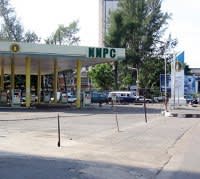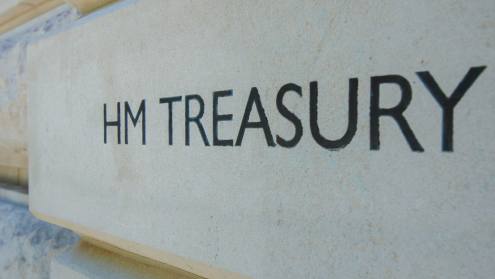After a year of oil price volatility, the stable outlook for the industry means that Nigeria's economy is on track to register high growth this year. In addition to better oil pricing, the country should also benefit from higher production, facilitated in large part by the end of conflict in the Niger Delta region. Nevertheless, the fallout from last year's subdued performance is still being felt.
The decline in oil receipts, which accounts for approximately 80% of government revenue, meant that Nigeria's fiscal position moved from surplus to deficit last year. At this stage, the deficit, which stood at 5.2% of gross domestic product (GDP), is not particularly worrying, according to Razia Khan, head of research for Africa at Standard Chartered. "The magnitude of the budget deficit is not so much a problem, but the pace at which it has grown recently is certainly a concern," she explains.
Money management
Undeterred by its poorer fiscal position, Nigeria's government has announced plans to ramp up spending by 50% from the expenditure outlined in the 2009 budget. Next year's presidential election is cited as an influential factor behind this dramatic increase. "[Current president] Goodluck Jonathan will probably stand for the presidency. So there is more of an incentive to be fiscally lax, which the 2010 budget exemplifies, in order to improve his election chances," says Stephen Bailey-Smith, head of research for Africa at Standard Bank.
The government's assumptions of the budget's twin pillars, the price of oil and production levels, have increased significantly. Although the benchmark oil price and output figure have since been revised downward, such an optimistic outlook over the immediate future of the oil industry has worried some. "The key thing is that budget assumptions should not be too ambitious so that savings can be made. If another oil price shock were to occur, Nigeria would be left in a difficult position. The government should always be conservative when budgeting for oil," says Ms Khan. Given the Niger Delta's record and the recent price volatility, the government might benefit from a more conservative outlook.
A further cause for concern is that the country's Excess Crude Account (ECA), to which oil receipts above projected budget figures flow, has been run down in recent years. The way in which federal and regional authorities have used the ECA is of some concern, according to Christian Esters, sovereign analyst at Standard & Poor's. "The main idea of the ECA is to better manage revenue from Nigeria's oil exports, but the protection and commitment involved has not been sufficient in all cases to protect the ECA from being tapped on an ad hoc basis," he says.
Replenishing the ECA remains a priority, particularly as internal and external factors might affect the contribution that oil makes to the Nigerian government's finances. "The rundown of the ECA means the budget deficit could get worse if the oil price falls or the Delta peace accord fails. It begs the question of how the ECA can be better managed - a largely political issue," says David Cowan, Africa economist at Citigroup.
The non-oil economy
The increased contribution of Nigeria's non-oil segment is helping to strengthen its economy's ability to withstand oil shocks. Agriculture has been a notable performer, accounting for 36.5% of GDP last year on the back of a good harvest. According to Standard Bank's Mr Bailey-Smith, the economy's performance this year will depend largely on the performance of the non-oil economy. "The government is looking for higher growth this year but the non-hydrocarbons sector - namely agriculture, wholesale, retail, trade and services - has to perform well, which it is doing at the moment," he says.
In spite of the agriculture sector's strong performance, food price-induced inflation has been on the rise, which Citigroup's Mr Cowan believes is likely to remain a problem this year and might lead to a tightening of monetary policy. "There have been two disconnects in Nigeria in recent years. On the one hand, there has been strong growth in the non-oil sector, driven allegedly by the agriculture sector. However, food prices have also risen, which appears to be a contradiction," he explains.
The banking sector's problems are also under the spotlight. Public money has been used to provide liquidity support to troubled banks so that they are prevented from collapse and depositor funds are protected. The impact of the sector's troubles on the wider economy is not lost on S&P's Mr Esters. "Restoring confidence and stability in the banking system is a key requirement for the revival of the country's economy. The problems stemming from the country's banking sector greatly influenced our decision to downgrade Nigeria's sovereign rating last year," he says.

Slow progress: Nigeria's reform process will involve breaking up the state-owned Nigeria National Petroleum Corporation
Maximising oil
In addition to reform of the banking sector, reform of the oil industry will provide a way of boosting Nigeria's economic prospects. The reform process entails breaking up the Nigeria National Petroleum Corporation (NNPC), the state-owned oil corporation, into several profit-driven units able to raise funds by investing in the capital markets, rather than continuing with the present arrangement by which the NNPC depends on government revenues. Legislation to this effect was in progress in August.
If the changes can be made, it is anticipated that the oil industry could almost double daily production, particularly if development of offshore fields is pursued. "If the NNPC is correctly reformed and the operating environment for the oil industry is improved, there is no reason why the country cannot become a 4 million bpd [barrels per day] oil producer," says Mr Cowan.
Challenges ahead
The issue of infrastructure also poses a problem. Nigeria's dilapidated road and railway networks, together with limited power generation capacity, are particular weaknesses, and serve as a constraint on the country's economic development. Addressing those issues is likely to require significant investment and it is hoped that the estimated $12.3bn set aside for capital expenditure in this year's budget will provide some improvements. Greater efficiency will be required, according to Mr Bailey-Smith. "The government must improve the efficiency with which public spending in infrastructure is dispersed," he says.
It should be mentioned that there has been greater impetus on the part of Goodluck Jonathan's administration to deal with the country's infrastructure. In mid-June, it was announced the president had approved the composition of a new power reform structure in order to address the issue of electricity blackout. He will chair the Presidential Action Committee on Power, which is expected to provide leadership and guidance for the development of the power sector.
Political uncertainty
The uncertainty surrounding next year's presidential election means that pursuit of reforms might lose momentum as electioneering begins. There is also the added dimension of Nigeria's north-south divide, which means there is a de facto rotation policy. "The uncertainty largely surrounds the candidacy, as it is unclear whether the current president will run for the position. However, if he would, such a development is likely to be at odds with the gentlemen's agreement by which there is a rotation between people from the north and south of the country taking turns as president," says Mr Esters.
While clarifying the succession process is essential to the country's stability, the incoming administration is likely to inherit an economy buoyed by a revived oil industry, which is likely to drive economic growth to 4.4% this year and 5.5% next year, according to the African Development Bank and the Organisation for Economic Co-operation and Development. Irrespective of the risks attached to such a strategy, it seems that the country can continue to depend on oil as its mainstay. "I believe the country's dependence on oil is relatively sustainable, as I remain constructive on oil prices on a longer-term basis. The growing global oil demand, especially from the emerging markets, means the industry will remain important for the foreseeable future," says Mr Bailey-Smith.
Nevertheless, the new administration will do well to remain mindful of the oil industry's recent experiences and actively pursue the more sensible strategy of economic diversification. Infrastructure remains the starting point.












